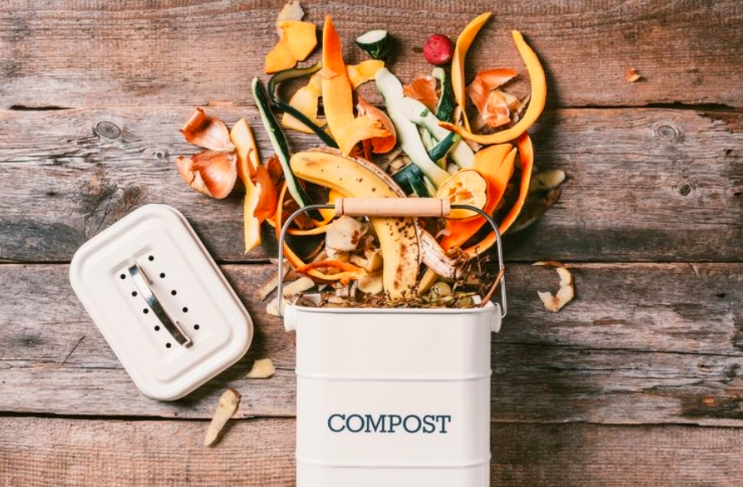Indonesia As The Second Largest Food Waste Contributor In The World
Source: https://food.detik.com
Food waste is waste caused by retailers, food services, and consumers. This occurs at the end of the food chain when there are no more resources to decompose it. And Indonesia, in addition to the problems of malnutrition and hunger, is also experiencing a large food waste problem. Currently, according to existing facts, Indonesia is the second largest food waste contributor in the world after Saudi Arabia. Several studies have found that food waste in two major cities in Indonesia, namely Surabaya and Bogor, reaches more than 60%. And a recent study from Bappenas, Waste4Change, and WRI Indonesia also revealed that the amount of food waste and food loss in Indonesia from 2000-2019 reached 23-48 million tons per year.
Based on data presented by The Economist Intelligence Unit in 2017, Indonesia holds the title of the second largest waste contributor in the world. when averaged, each individual contributes 300 kg of waste. Another thing to pay attention to is food waste. In fact, according to waste processing data for 2017/2018, the National Waste Management Information System (SIPSN) for food waste accounts for 46.75% of the total waste in Indonesia. This situation is considered sad, considering the level of hunger in Indonesia is still high. Where the amount of food waste can support about 28 million people or as much as 11% of the population in Indonesia.
According to the Ministry of National Development Planning, food loss and waste in Indonesia is dominated by grains, such as rice, corn, wheat and related products, while the least efficient type of processed food is vegetables, which account for 62.8% of total domestic losses in Indonesia. Research agency The Economist Group also revealed in a 2016 study that Indonesia needs to change its infrastructure and increase consumer awareness to curb the increase in food waste. The EIU recommends that governments begin imposing fines on food wasters or providing incentives to households and businesses that use edible food for human consumption, animal feed, industrial use, and anaerobic digestion and composting.
Source: Kompasiana.com
Indonesian farmers need to learn how to store their products properly to avoid premature expiration, and consumers also need to be made aware to prevent food wastage. Wasting less food won’t just happen overnight. But being more aware of how we buy food and how we can actually help us to waste less. Many efforts can be made to reduce food loss and waste (FLW), because reducing FLW needs to be carried out by all elements of the food chain from food supply providers, producers, to consumers.
- From the supply of food ingredients, they can begin to understand well the products they have, besides that they must also understand how to provide proper treatment, storage, and packaging for the food they will distribute. Thus minimizing food losses caused by improper storage or packaging of food ingredients.
- For the producers themselves, they must have good rules in managing the food ingredients they have, especially for restaurant owners or other food industries. Producers must know enough to produce a food so that there is no food loss to and no food waste.
- The last effort to reduce food waste can also be done by consumers, namely the people who consume the food or food ingredients they buy. They should be given socialization about behavior in processing and consuming food ingredients, in addition, producers such as restaurants can impose fines on food that they do not eat. They can also use the remaining food materials to make compost or distribute them to communities that are able to manage the food waste.
Efforts need to be made to manage food at every stage until it becomes waste to reduce food loss and food waste. In addition to reducing food loss and food waste, we can build solidarity and strengthen brotherhood. With the efforts made by food chain actors by reducing the habit of wasting food, they can have a more positive impact on themselves, but also on the people closest to them and even the environment around them. In addition, the above activities to prevent food waste and food loss also include the 3R approach, “Reduce, Reuse, Recycle”, which helps create FLW.
References:
- Bisara, D. (2017, July 07). Indonesia second larger food waster. Retrieved September 15, 2022, from https://jakartaglobe.id/business/indonesia-second-largest-food-waster/
- Muliawati, F.D. (2021, September 01). Indonesia penyumbang sampah terbesar kedua di dunia, limbah makanan mendominasi. Retrieved September 15, 2022, from https://www.idxchannel.com/economics/indonesia-penyumbang-sampah-terbesar-kedua-di-dunia-limbah-makanan-mendominasi
- Cahyani, F.A., Wulandari, P., & Putri, N.A. (2022). Food waste management regulation in Indonesia to achieve sustainable development goals. 1-7. https://iopscience.iop.org/article/10.1088/1755-1315/978/1/012022/pdf
- Christania, C. (2020, May 15). Food for thought: Less food waste, a happier planet. Retrieved September 15, 2022, from https://www.projectplanetid.com/post/food-for-thought-less-food-waste-a-happier-planet


